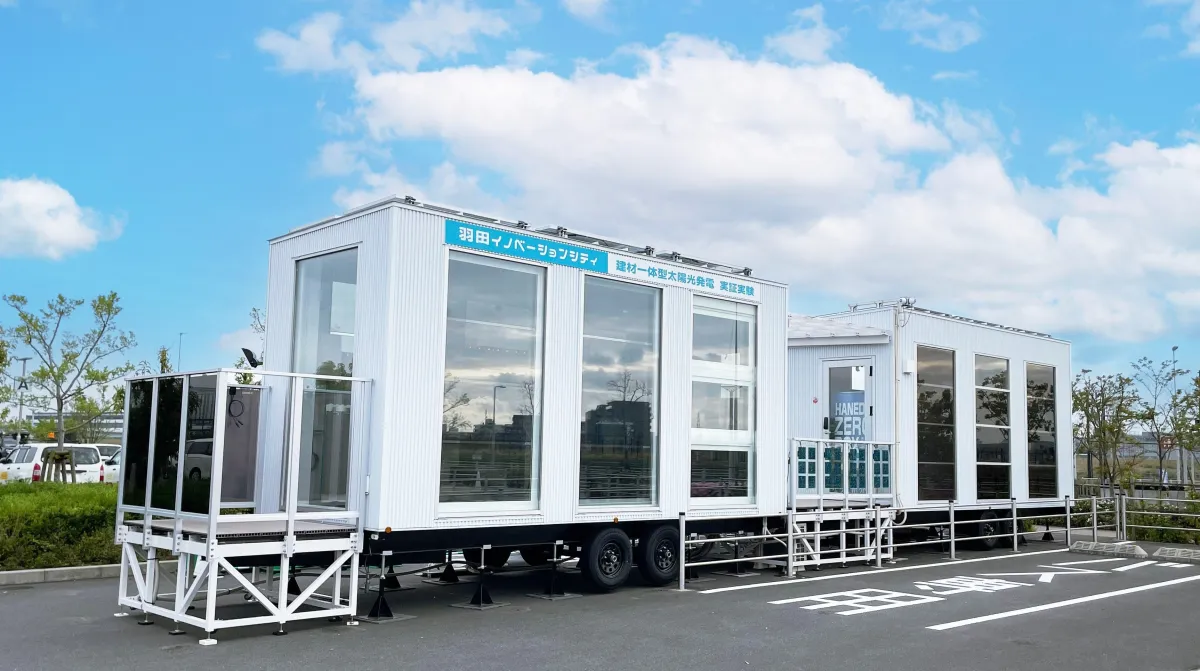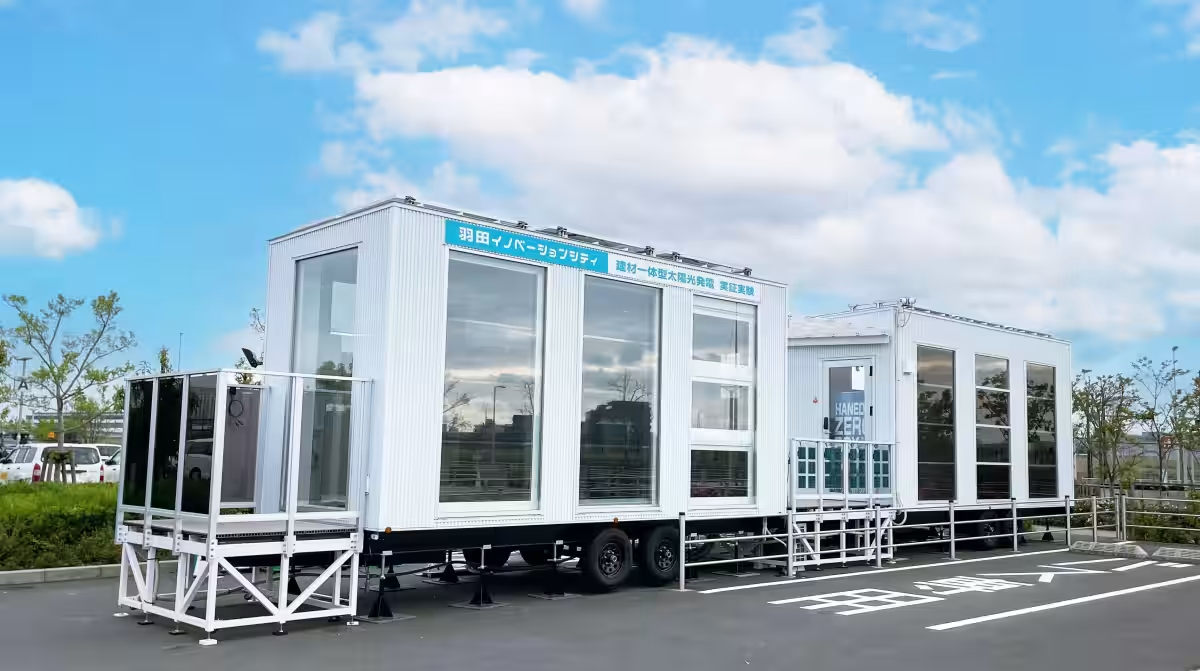

YKK AP Launches Haneda BIPV Solar Power Test Lab for Innovative Energy Solutions
YKK AP's New Initiative: Haneda BIPV Solar Power Test Lab
In a groundbreaking move towards sustainable energy solutions, YKK AP Corporation has officially announced the commencement of a test laboratory dedicated to Building Integrated Photovoltaics (BIPV) at Haneda Innovation City. This establishment marks a significant step in the research and development of innovative solar technologies, specifically focusing on the effective use of perovskite solar cells.
Located in Tokyo's Ota Ward, the newly set-up Haneda BIPV Solar Power Test Lab (dubbed “HANEDA ZERO BOX”) aims to collect crucial data to expedite the early social implementation of integrated solar power solutions built directly into building materials. The official start of this research endeavor began on April 25 and is expected to run until October 20, 2025, with a primary focus on data collection rather than public demonstration.
Previous Initiatives and Collaborations
YKK AP is collaborating with Kandenko Co., Ltd. in this initiative. This partnership has previously led to successful test projects, including the “Akiba ZERO BOX” and “SAPPORO ZERO BOX” last year. The Akiba experiment provided valuable data amidst the urban environment and dense structures of Akihabara, showcasing the efficiency of perovskite solar cells when incorporated into window designs. Meanwhile, the SAPPORO ZERO BOX conducted trials in snowy conditions, evaluating the performance and effectiveness of vertical solar setups.
The new lab represents an evolution of these earlier efforts, transitioning the focus more towards rigorous data collection rather than public interaction. For the first time, the test will collect simultaneous data from both interior and exterior window installations, leveraging the same operational conditions, offering insights that are vital for future societal adoption of BIPV systems.
Goals and Objectives
The major objectives of this testing laboratory are to evaluate the performance characteristics, durability, and safety of solar cell modules used in Building Integrated Photovoltaics. The lab will carry out comparative studies between:
- - The generation capabilities of glass-type perovskite solar cells installed on outer and inner window frames.
- - The performance differences between silicon solar cells and perovskite solar cells.
- - The advantages of vertical installations versus rooftops in solar energy harvest.
The lab is structured to facilitate these experiments effectively, featuring advanced solar cell modules with 4 panes of 1200mm x 2400mm size for perovskite technology and 600mm x 1200mm for supplementary setups, totaling a substantial number of units deployed for testing. Additionally, the lab spans dimensions of 7.2m in length, 2.5m in width, and 3.7m in height, creating a controlled environment specifically designed for scientific evaluation.
Contribution to Carbon Neutrality
Through these innovative approaches, YKK AP aims to enhance its ongoing commitment to energy-efficient solutions by integrating insulation properties with energy generation capabilities. This dual strategy supports broader initiatives targeted at achieving carbon neutrality, ensuring that buildings are not just energy consumers but also contributing to energy production.
As the world shifts towards greener technologies, YKK AP's investments in BIPV systems manifest a proactive approach in aligning with global sustainability visions, paving the way for smarter, more integrated urban environments in the future. The results from the Haneda BIPV Solar Power Test Lab could lay the groundwork for a revolution in how we conceive solar technology in building designs, contributing towards a sustainable future.

Topics Consumer Technology)










【About Using Articles】
You can freely use the title and article content by linking to the page where the article is posted.
※ Images cannot be used.
【About Links】
Links are free to use.